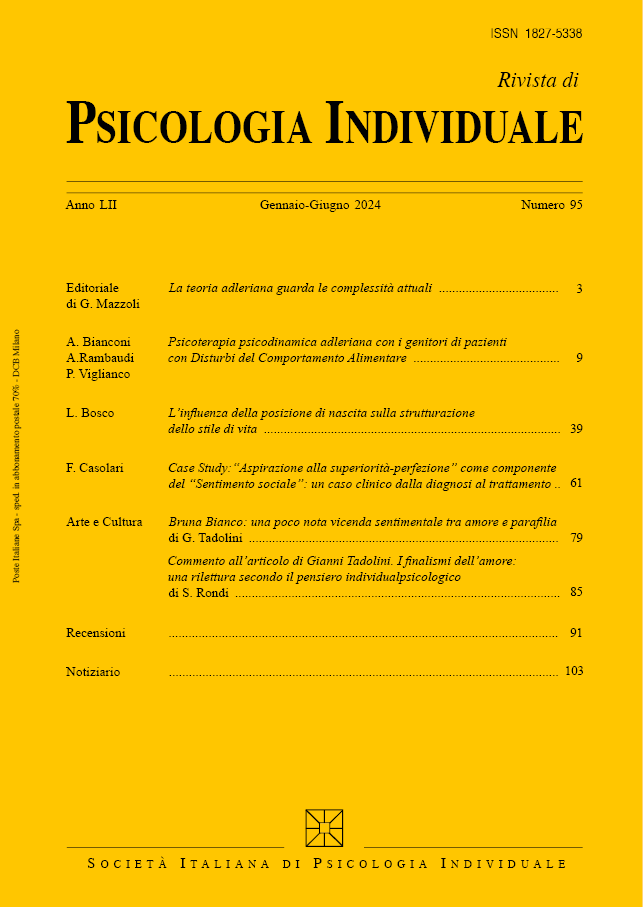The influence of traditional and modern fairy tales on the formation of children's lifestyles
Keywords:
compensation, unconscious conflicts in children, creativity, education, identification, childhood inferiority, gender inferiority, projection, symbolizationAbstract
The educational and formative potential of fairy tales is enormous, because they symbolically evoke the existential problems that children face, identifying with the characters in the story. Children also ask to be told fairy tales at times when they are prone to anxiety. The fantastical, magical, and irrational world of fairy tales is filtered through the narrator and their experiences. This connotation is lost in television and film narratives, where verbal language is replaced by iconic language and often risks being stereotypical and uninspiring for creativity. Furthermore, the content of violence and destructiveness is more intense and raw. Even in these narratives, however, the inferiority of the protagonist is compensated for by the development of affection and social feelings, and there are clear distinctions between good and evil. In modern fairy tales, technology has replaced magic, and the situation of inferiority to be overcome is usually a collective danger from which the hero saves humanity. Traditional fairy tales in particular crystallize male superiority and female inferiority, often accentuated by the fact that the protagonist is an orphan and the victim of countless misfortunes






